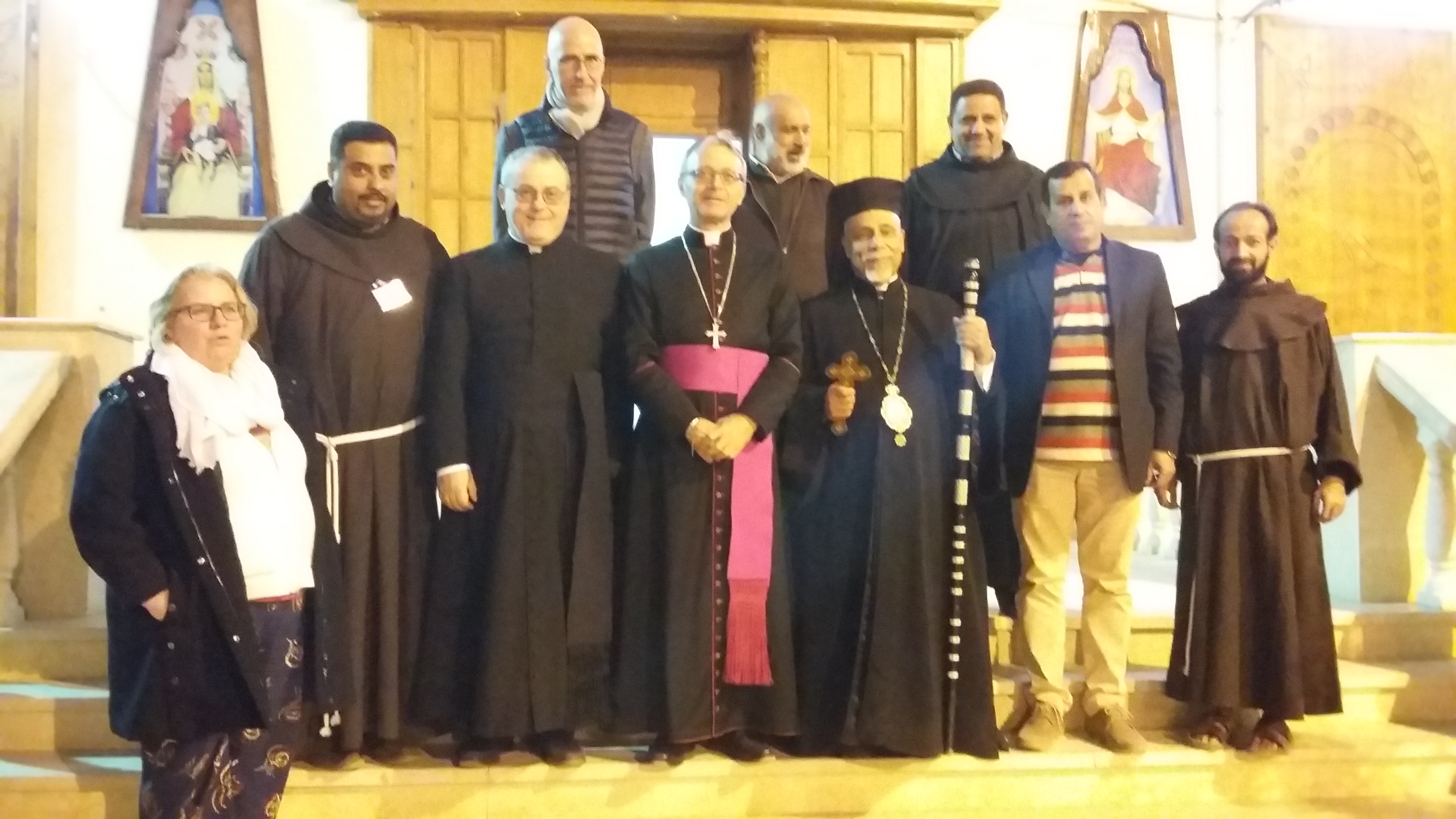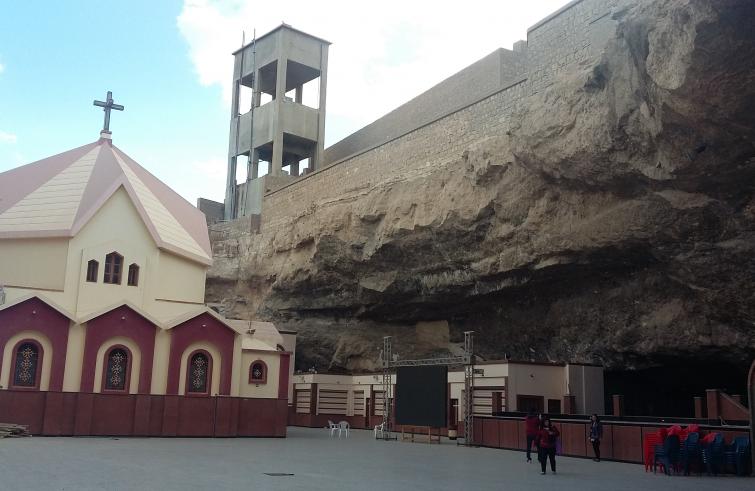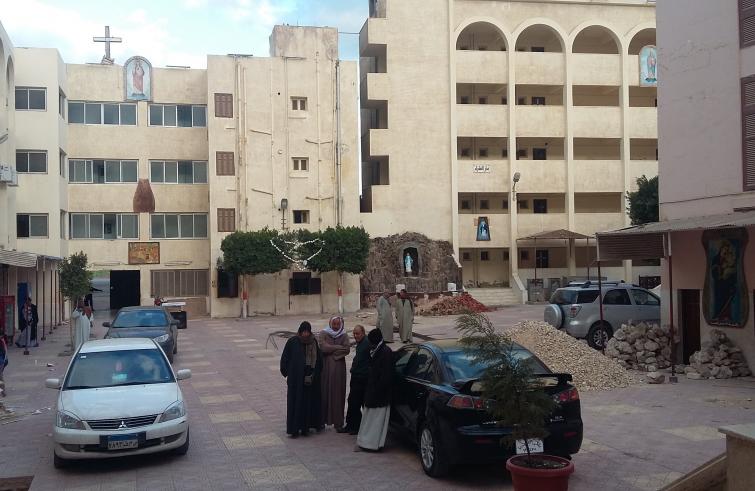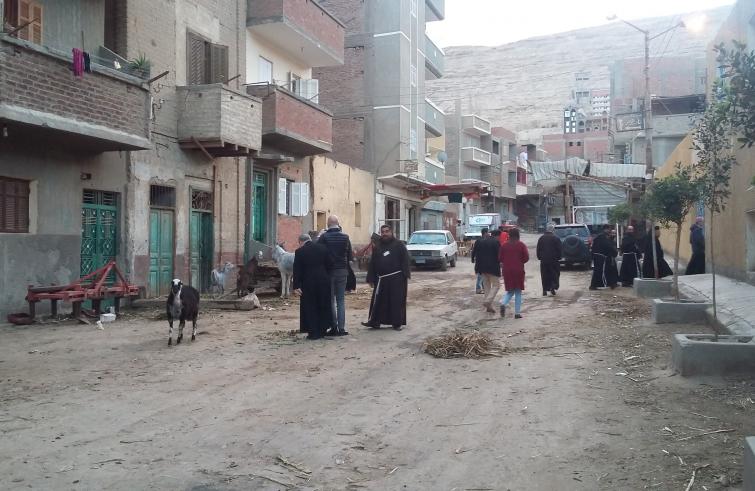Egypt
In the Christian village of Der Dronka (Assiut), Franciscan fathers have implemented various initiatives (a bakery, a windmill, a school, a carpentry, along with the separate collection of rubbish) to allow the local population to work with dignity. The dream is to open up a gas station and purchase two pumps to clean out septic tanks. Everything is done in the style of dialogue and encounter that characterised the meeting of Francis of Assisi with the Sultan Melek-al-Kamel in Damietta, Egypt, in 1219

A “Franciscan” village in the heart of the Assiut region, in Upper Egypt. It’s Der Dronka, with its 20 thousand inhabitants, all of them Christian – 15 thousand Coptic-Orthodox and 5000 Catholics. It is located a few kilometers from Assiut, on a bumpy road that passes through several villages with a predominantly Muslim population.
 The Centre is known for the Shrine of Virgin Mary on the mount that bears the same name, visited by tens of thousands of Coptic and Muslim faithful every year, built as a fortified castrum, which, according to tradition, was the grotto where the Holy Family took shelter for a certain period of time during the flight to Egypt. Christian populations have lived on these mountains overlooking the fertile Assiut plains since the beginning of Christianity. In their long story they were accompanied by the Franciscans’ presence. Yesterday like today, a small community of friars from the Egyptian province of the Holy Family are devoted to animating “the living stones” of this land, cherishing the memory of Christ. Theirs is the very approach to encounter and dialogue that characterised the meeting of Francis of Assisi with the Sultan Melek al-Kamel, in Damietta, Egypt, in 1219. Today the Franciscans living in Der Dronka coordinate several educational and social activities to counter the situation of extreme poverty of the local Christian community.
The Centre is known for the Shrine of Virgin Mary on the mount that bears the same name, visited by tens of thousands of Coptic and Muslim faithful every year, built as a fortified castrum, which, according to tradition, was the grotto where the Holy Family took shelter for a certain period of time during the flight to Egypt. Christian populations have lived on these mountains overlooking the fertile Assiut plains since the beginning of Christianity. In their long story they were accompanied by the Franciscans’ presence. Yesterday like today, a small community of friars from the Egyptian province of the Holy Family are devoted to animating “the living stones” of this land, cherishing the memory of Christ. Theirs is the very approach to encounter and dialogue that characterised the meeting of Francis of Assisi with the Sultan Melek al-Kamel, in Damietta, Egypt, in 1219. Today the Franciscans living in Der Dronka coordinate several educational and social activities to counter the situation of extreme poverty of the local Christian community.
Father Paolo, Father Shenouda and Father Youssef are the “guardians” of this flock of 5000 Catholics, but their dedication and care is extended to all those in need, no one excluded.
 They live in the convent devoted to St Mary of the Assumption, which a few days ago received a solidarity visit by a delegation from Aid to the Church in Need – Italy, led by its director, Alessandro Monteduro. The convent is also busily engaged in restoration works of some of its ancient walls. In fact, explained Coptic Art historian, archaeologist Ezzat Habib Salib, the remains of an ancient harbour, adjoining the Nile’s original riverbank, were brought to light in the premises of the Convent. From here, according to tradition, Jesus, Joseph and Mary set off up the river to return to Nazareth.
They live in the convent devoted to St Mary of the Assumption, which a few days ago received a solidarity visit by a delegation from Aid to the Church in Need – Italy, led by its director, Alessandro Monteduro. The convent is also busily engaged in restoration works of some of its ancient walls. In fact, explained Coptic Art historian, archaeologist Ezzat Habib Salib, the remains of an ancient harbour, adjoining the Nile’s original riverbank, were brought to light in the premises of the Convent. From here, according to tradition, Jesus, Joseph and Mary set off up the river to return to Nazareth.
The priests’ hope is that “the convent may become one of the most significant destinations ‘On the trail of the Holy Family’, a route across the sites where, according to tradition, the Virgin Mary, Joseph and the Child Jesus found safety and shelter in their flight from Herod.”
In the meantime it is necessary to consider the needs of the local community: education, food, work, healthcare.
“Here there is nothing”
the priests said with a meek voice as they walked through the narrow streets and muddy paths. The centre of the village is in an evident state of neglect. Outside the convent we meet the military and the security forces deployed by President al-Sisi to defend them from possible terror attacks. At they walked, the inhabitants came out of their homes to greet them.

Sheep and goats are often seen grazing outside the front doors of buildings. “For many families they are the only source of income – said Father Shenouda – for this reason we have implemented set of activities that give employment to several families.
We want to restore the dignity they deserve.”
In the past years the Franciscan fathers, with the help of the Coptic-Catholic diocese of Assiut, led by Msgr. Kyrillos William, set up a mill and a bakery “that produces 6000 loafs of bread every day that are give to the local families. Each one is entitled to 5 a day, as decided by the government, which set a preferential price for the bread.” Further ahead we hear the sound of carpentry machines. Inside, some of the workers are making chairs, small furniture and benches.
“We entrusted these activities to local population so they may live off on their job earnings in a dignified way – the priest out – . We also run a school with 250 pupils that are exempted from paying fees, and we bought a small strip of land for the separate collection of rubbish in order to increase our funds that may be used for the needs of the community. With the nuns we run a medical dispensary.”
But there is more to the friars’ mission: their dream is to provide the village with a “gas station and purchase two pumps to clean out septic tanks. In fact the village lacks a sewage system and the pumps are a priority in terms of hygiene and personal health.” Listening to the voices coming from the living stones of the Holy Land to understand their needs and message has always characterised the commitment of the sons of Saint Francis in this strip of Land. In Der Dronka the story continues…